Aging is a natural process, but how we age is increasingly within our control. Modern research shows that with the right nutritional support, we can influence cellular health, maintain cognitive function, and support our body’s systems as they change over time. While a balanced diet forms the foundation of healthy aging, targeted supplementation can address specific needs that emerge as we grow older.
What Does Healthy Aging Mean Today?

Modern gerontology has shifted from merely extending lifespan to enhancing “healthspan” – the period of life spent in good health, free from chronic diseases and debilitating conditions. Healthy aging encompasses maintaining physical function, cognitive abilities, and emotional well-being as we grow older.
At the cellular level, healthy aging involves managing oxidative stress, supporting mitochondrial function, maintaining DNA integrity, and promoting proper cellular communication. These processes can be influenced by lifestyle factors, including nutrition and supplementation.
The Science Behind Supplements for Healthy Aging
Before diving into specific supplements, it’s important to understand that supplementation should complement, not replace, a nutrient-rich diet. Research shows that certain nutrients become more difficult to absorb or produce as we age, creating potential gaps that targeted supplementation can address.
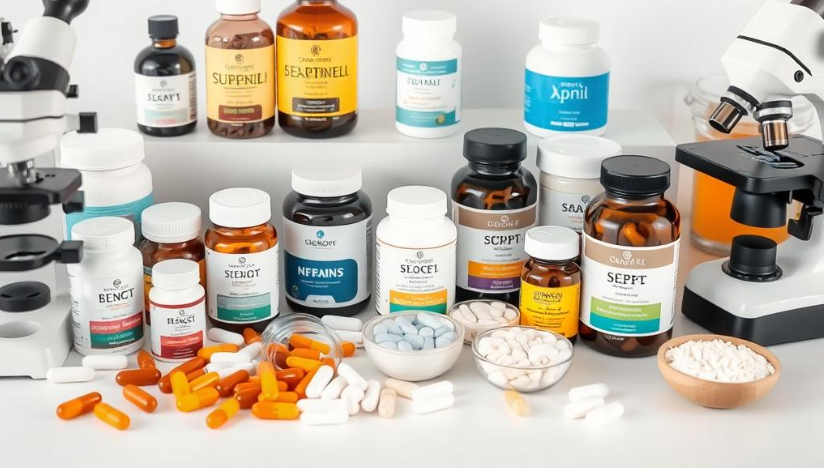
When evaluating supplements for healthy aging, consider three key factors: scientific evidence supporting their benefits, quality of the supplement, and your individual health needs. Always consult with a healthcare provider before starting any new supplement regimen, especially if you have existing health conditions or take medications.
Top 10 Best Supplements for Healthy Aging
1. Vitamin D

Scientific Rationale: Vitamin D plays a vital role in bone health, immune function, and cell growth. Research published in the Journal of Aging Research (2023) found that maintaining optimal vitamin D levels may help prevent cognitive impairment and support immune system function in older adults.
Recommended Dosage: 1,000-2,000 IU daily for adults over 50, though needs may vary based on sun exposure and individual health factors.
Food Sources: Fatty fish (salmon, mackerel), fortified dairy products, egg yolks, and sunlight exposure.
Synergies: Works well with calcium and magnesium for optimal bone health.
“Low vitamin D levels are linked to quicker aging, cognitive impairment, and dementia in aging populations. However, more research is needed to determine the effects of vitamin D on aging conclusively.”
2. Omega-3 Fatty Acids
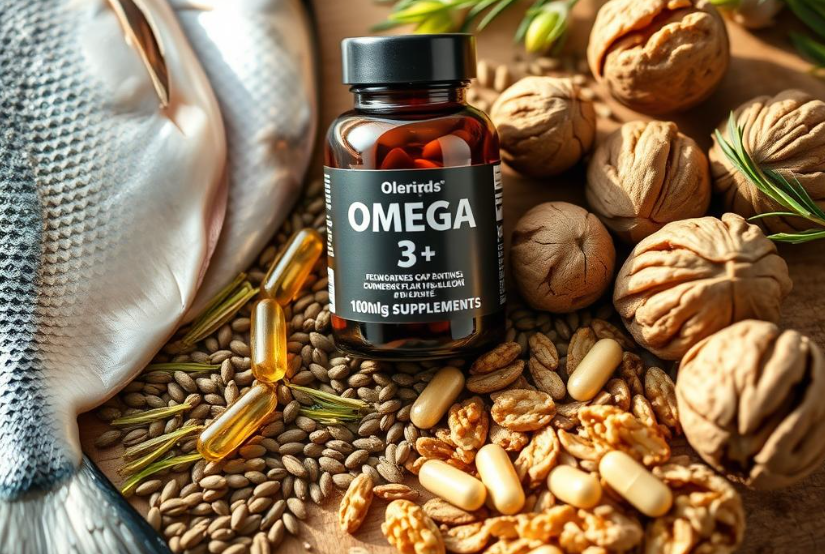
Scientific Rationale: Omega-3s, particularly EPA and DHA, support brain health, reduce inflammation, and promote cardiovascular function. A 2022 meta-analysis in Frontiers in Nutrition found that long-term omega-3 supplementation was associated with better cognitive outcomes in aging adults.
Recommended Dosage: 1,000-2,000 mg combined EPA and DHA daily.
Food Sources: Fatty fish (salmon, sardines), flaxseeds, chia seeds, and walnuts.
Synergies: Pairs well with vitamin E for enhanced antioxidant protection.
3. Coenzyme Q10 (CoQ10)
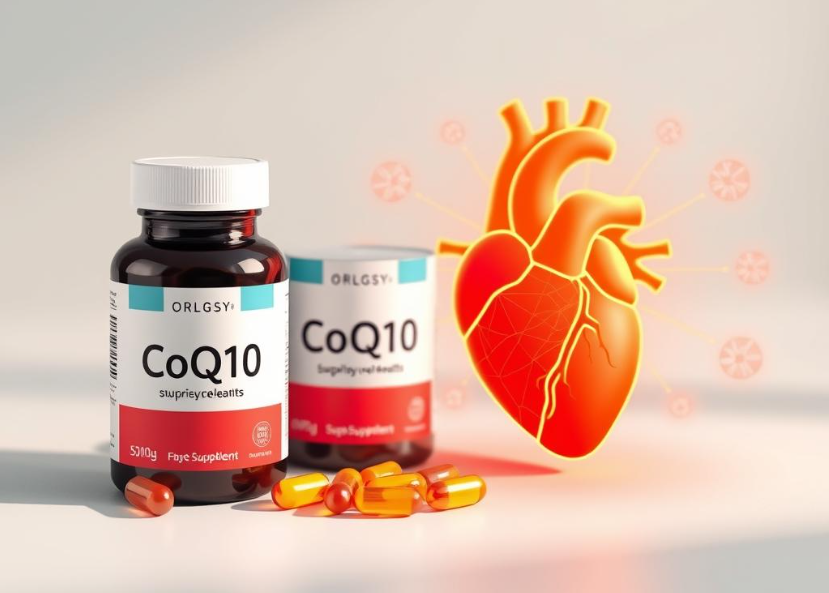
Scientific Rationale: CoQ10 is an antioxidant compound that supports mitochondrial function and energy production. Levels naturally decline with age. A 2021 review found that CoQ10 supplementation reduced some effects of heart problems, lowered risk of high blood pressure, and improved outcomes for those who had coronary bypass surgery.
Recommended Dosage: 100-200 mg daily, preferably in the ubiquinol form for better absorption in older adults.
Food Sources: Organ meats, fatty fish, and whole grains, though dietary amounts are typically insufficient to significantly raise levels.
Synergies: Works well with selenium for enhanced cardiovascular protection.
4. Magnesium
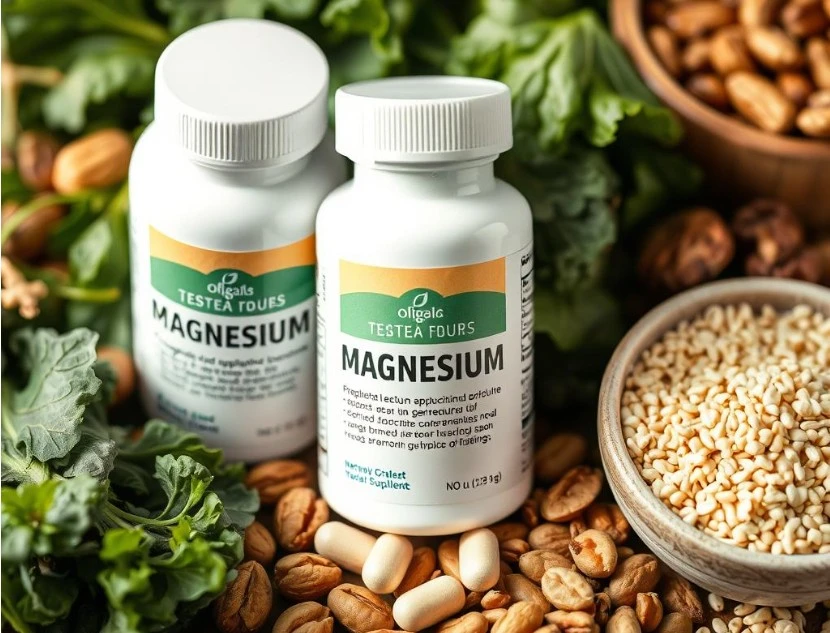
Scientific Rationale: Magnesium is involved in over 300 enzymatic reactions in the body and supports muscle and nerve function, blood glucose control, and blood pressure regulation. Magnesium deficiency becomes more common with age and may lead to increased inflammation and oxidative stress.
Recommended Dosage: 310-420 mg daily for adults, depending on age and gender.
Food Sources: Green leafy vegetables, nuts, seeds, whole grains, and legumes.
Synergies: Pairs well with vitamin D and calcium for bone health.
5. Curcumin

Scientific Rationale: Curcumin, the active compound in turmeric, has powerful anti-inflammatory and antioxidant properties. Research suggests it may affect proteins involved in cellular aging processes, including oxidative stress, inflammation, and DNA repair.
Recommended Dosage: 500-1,000 mg daily of curcumin with enhanced bioavailability (formulated with piperine or as a phytosome).
Food Sources: Turmeric, though dietary amounts typically provide limited curcumin absorption without additional compounds.
Synergies: Black pepper extract (piperine) dramatically increases absorption.
6. Resveratrol
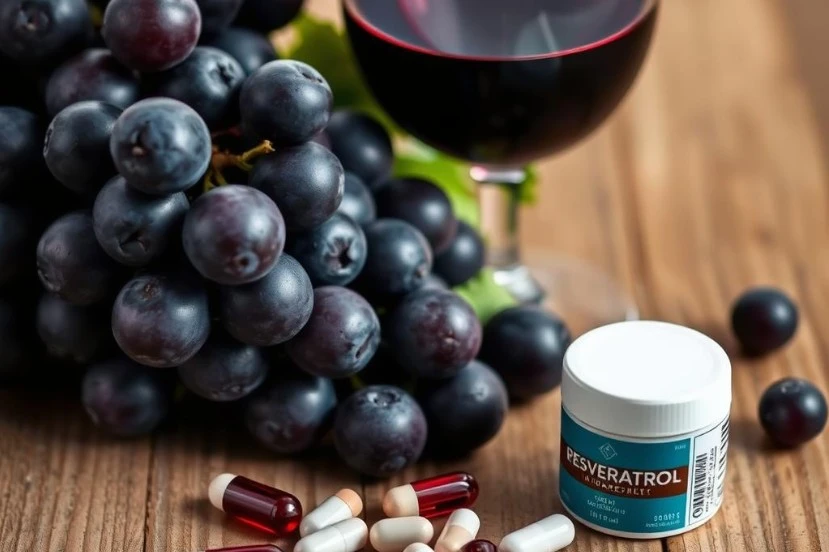
Scientific Rationale: Resveratrol is a plant compound with antioxidant, anti-inflammatory, and potential longevity-promoting properties. It helps limit oxidative stress, lower inflammation, regulate mitochondrial function, and influence cellular aging pathways.
Recommended Dosage: 100-500 mg daily.
Food Sources: Red grapes, red wine, blueberries, and dark chocolate, though in relatively small amounts.
Synergies: May work synergistically with other antioxidants like quercetin.
7. Collagen Peptides
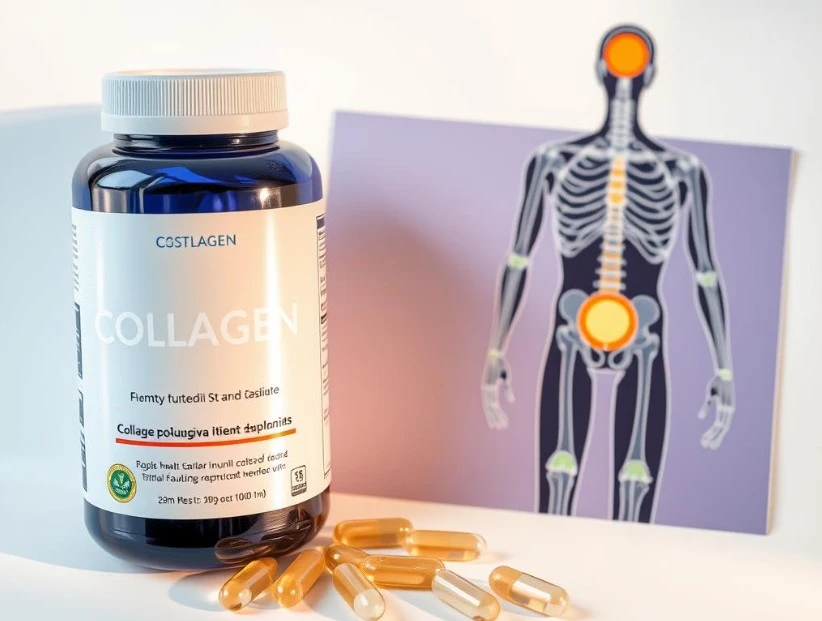
Scientific Rationale: Collagen is the main structural protein in skin, joints, and connective tissues. Production decreases with age. A 2023 systematic review found that collagen supplementation improved skin elasticity, hydration, and reduced the appearance of wrinkles in aging skin.
Recommended Dosage: 5-10 grams of collagen peptides daily.
Food Sources: Bone broth, chicken skin, and fish with edible bones, though supplemental forms are more concentrated.
Synergies: Vitamin C is essential for collagen synthesis.
8. Taurine
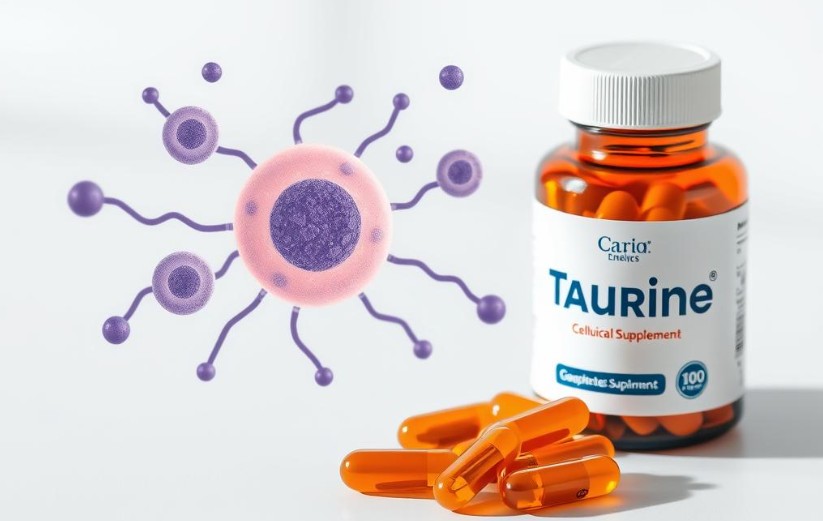
Scientific Rationale: Taurine is an amino acid that supports cellular health, particularly mitochondrial function. Levels often decline with age. Recent research published in Science (2023) identified taurine deficiency as a potential driver of aging, with supplementation showing promise for extending healthspan in animal studies.
Recommended Dosage: 1-2 grams daily.
Food Sources: Meat, seafood, and eggs, though supplementation may be needed to achieve therapeutic levels.
Synergies: May work well with other mitochondrial support nutrients like CoQ10.
9. Vitamin B12
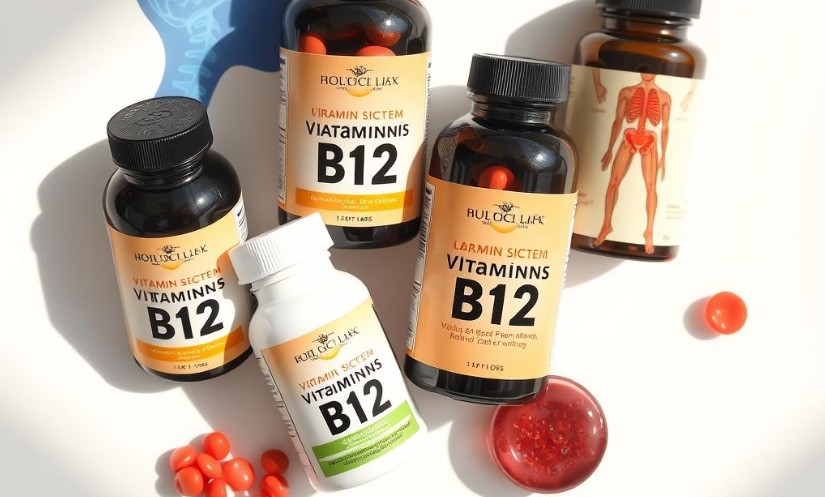
Scientific Rationale: Vitamin B12 is essential for nerve function, DNA synthesis, and red blood cell formation. Absorption decreases with age, with up to 30% of older adults having some level of deficiency. Low B12 levels are associated with cognitive decline, neuropathy, and anemia.
Recommended Dosage: 25-100 mcg daily, with higher doses often recommended for older adults.
Food Sources: Animal products including meat, fish, eggs, and dairy.
Synergies: Works with folate and B6 for homocysteine metabolism and cardiovascular health.
10. Probiotics
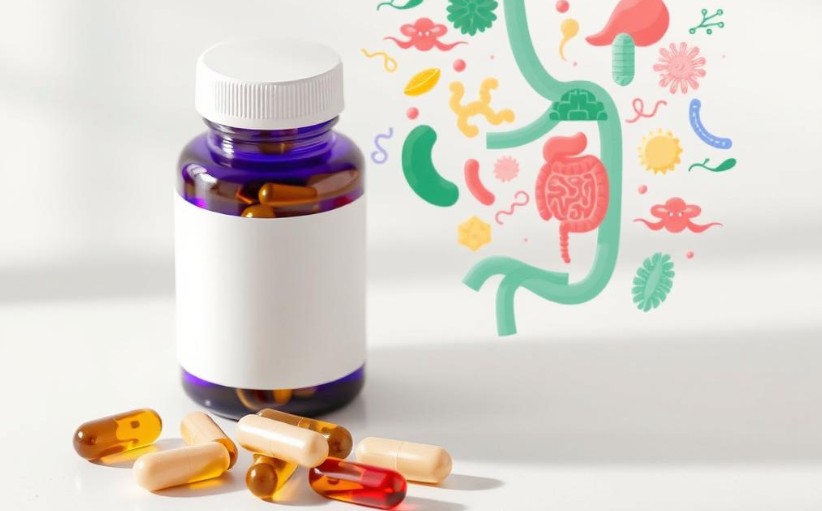
Scientific Rationale: The gut microbiome plays a crucial role in immune function, nutrient absorption, and even brain health. Research shows that microbiome diversity tends to decrease with age, potentially contributing to inflammation and immune dysfunction.
Recommended Dosage: Look for multi-strain formulas with at least 10-30 billion CFUs daily.
Food Sources: Fermented foods like yogurt, kefir, sauerkraut, and kimchi.
Synergies: Prebiotics (fiber) feed beneficial bacteria and enhance probiotic effectiveness.
Timing and Bioavailability Considerations
When it comes to supplements, when and how you take them can be just as important as which ones you choose:
Fat-Soluble Vitamins
Vitamins A, D, E, and K, as well as CoQ10 and resveratrol, are best absorbed when taken with a meal containing healthy fats.
Water-Soluble Vitamins
B vitamins and vitamin C can be taken on an empty stomach but may cause digestive discomfort in some people.
Minerals
Calcium and magnesium may compete for absorption, so consider taking them at different times. Iron is best absorbed on an empty stomach but may cause stomach upset.
Probiotics
Most probiotics benefit from being taken on an empty stomach, 30 minutes before a meal, though some strains are designed to be taken with food.
Enhanced formulations can significantly improve bioavailability. Look for liposomal delivery systems, phytosomes, or specific co-factors that increase absorption, such as piperine with curcumin or vitamin C with collagen.
Red Flags: Supplement Interactions
While supplements can support healthy aging, they can also interact with medications or each other in ways that may be harmful:
Always consult with a healthcare provider before starting any supplement regimen, especially if you take prescription medications or have existing health conditions.
| Supplement | Potential Interactions | Precautions |
| Vitamin D | May interact with certain blood pressure medications and statins | Monitor blood calcium levels with high doses |
| Omega-3s | May enhance effects of blood thinners | Discontinue 1-2 weeks before surgery |
| CoQ10 | May reduce effectiveness of blood thinners like warfarin | Monitor INR levels if on blood thinners |
| Magnesium | May interact with antibiotics, diuretics, and osteoporosis medications | Take 2-3 hours apart from medications |
| Resveratrol | May interact with blood thinners and certain cancer treatments | Avoid with hormone-sensitive conditions |
The Importance of Medical Consultation

While supplements can play a valuable role in supporting healthy aging, they should be part of a comprehensive approach that includes:
- Regular medical check-ups and appropriate screenings
- Blood work to identify specific nutrient deficiencies
- Consideration of your unique health history and current medications
- Evaluation of your diet and lifestyle factors
- Monitoring for effectiveness and potential side effects
Creating Your Personalized Supplement Regimen
The most effective approach to supplementation for healthy aging is one that’s tailored to your individual needs. Here’s how to create a personalized plan:
1. Assess Your Current Health Status
Work with a healthcare provider to identify specific areas of concern, such as bone density, cardiovascular health, or cognitive function. Consider comprehensive blood work to identify existing deficiencies or imbalances.
2. Evaluate Your Diet
Keep a food diary for 1-2 weeks to identify potential nutrient gaps. Supplements should complement, not replace, a nutrient-rich diet focused on whole foods.
3. Start with Essentials
Begin with a high-quality multivitamin and any supplements addressing identified deficiencies. Add targeted supplements based on specific health goals or concerns.
4. Monitor and Adjust
Track your response to supplements and adjust as needed. Some benefits may take weeks or months to become apparent, while others may be noticeable more quickly.
5. Reassess Regularly
As you age, your nutritional needs may change. Plan to reassess your supplement regimen annually or whenever there are significant changes in your health status.
A Balanced Approach to Healthy Aging
While supplements can play a valuable role in supporting healthy aging, they work best as part of a comprehensive approach that includes a nutrient-rich diet, regular physical activity, quality sleep, stress management, and social connection.
By taking a thoughtful, evidence-based approach to supplementation and working closely with healthcare providers, you can develop a personalized strategy that supports your body’s changing needs and helps you maintain vitality and wellness throughout your life’s journey.
Om du vill lära dig mer om kosttillskott som främjar ett hälsosamt åldrande, rekommenderar vi att läsa Healthlines omfattande guide: 10 of the Best Supplements for Healthy Aging